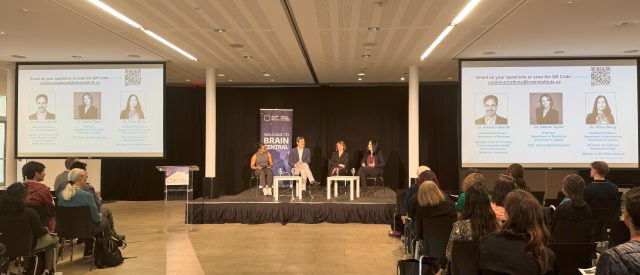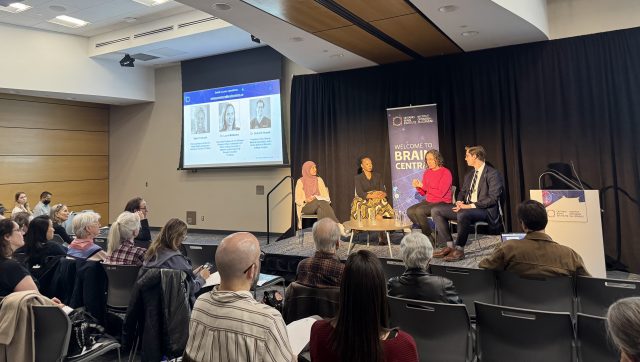We asked people living with neurodevelopmental disorders, their families, friends, carers, and healthcare professionals to list questions they had about diagnosis, therapies, care, and other interventions for neurodevelopmental disorders. After receiving about 1300 questions from 300 individuals across Ontario, we grouped them by topic, and checked against published research to see if they have already been answered.
Making sure you receive the answers to your unanswered questions about neurodevelopmental disorders is one way we are working to close the gap between the knowledge learned in research and its use in both clinical and community settings.
Here are some of the answers to the questions you asked that have already been answered by research:
MUSIC THERAPY
Research evidence suggests that music therapy may help children with neurodevelopmental disorders improve their social interaction and communication skills. Music therapy may also help children share their feelings and increase quality of parent-child relationships (Geretsegger M et al. The Cochrane Library (2014)).
VACCINATIONS
There is no research that suggests that vaccinations are associated with the development of neurodevelopmental disorders. There is also no research evidence that components of vaccinations such as mercury are associated with neurodevelopmental disorders (Taylor LE et al. Vaccine 32.29 (2014): 3623-3629).
BEHAVIOURAL THERAPY
Behavioural or cognitive-behaviour therapy (BT/CBT) is an effective treatment for children and adolescents with a neurodevelopmental disorder. In those with anxiety and persistent repetitive behaviours, research suggests that BT/CBT is as effective as medication alone and may lead to better outcomes when combined with medication (James AC, et al. The Cochrane Library (2015)).
PHYSICAL ACTIVITY
Research evidence suggests that physical activity can reduce the behavioral symptoms of ADHD. It also significantly improves cognitive functions in children with ADHD, including attention, working memory and academic performance (Song M et al. Western journal of nursing research 38.9 (2016): 1155-1184).
GLUTEN-FREE AND CASEIN-FREE DIET
There is not enough evidence to support the therapeutic value of a gluten-free and casein-free diet in people with neurodevelopmental disorders. A gluten-free and casein-free diet should be administered if an allergy or intolerance to nutritional gluten or casein is diagnosed (Millward C et al. The Cochrane Library (2008)).
GENETICS
Research in the genetics of neurodevelopmental disorders suggests that several hundred genes are likely involved. In addition, common risk genes are often found in family members diagnosed with different types of neurodevelopmental disorders (Carter MT & Scherer SW. Clinical genetics 83.5 (2013): 399-407).
MINDFULNESS
For individuals living with mild to severe neurodevelopmental disorders, evidence suggests that mindfulness may reduce the behavioural and/or psychological challenges of individuals, such as aggression or anxiety (Hwang, Y & Kearney, P, Research in Developmental Disabilities, 34.1 (2013): 314-326).
TRANSITION TO INDEPENDENT LIVING
In Ontario, many families and individuals with ASD reported not needing support with day-to-day functioning. Over 40% did not need help with daily life skills such as attending to personal hygiene or using transportation, and over 25% did not need help completing housework, planning and preparing meals, and attending and arranging appointments. In the US, 10% of adults with Autism Spectrum Disorder (ASD) surveyed lived independently in a home or apartment (Stoddart, K.P., et al. The Redpath Centre (2013)).
You can find the top 10 priorities agreed upon by the neurodevelopmental disorder community here. Together, we are working towards research being more closely partnered with Ontario communities. Through priority setting processes like these, and through our patient advisory groups, we are working on problems that will address real community and clinical priorities as part of our commitment to improving the lives of those living with brain disorders.



